It’s more than two weeks now since the Russian-led coalition declared a unilateral ceasefire in Aleppo to shut down the Western media and the United Nations from claiming that the Russian relentless bombings in Aleppo are causing human catastrophe.
Since then, the so called “moderate rebels” have launched multiple chemical attacks in Aleppo and Mosul, resulting to hundreds of civilian deaths which both the UN and the western media are so silent about.
This is the White House deceptively invoking its Plan B for Syria.
TEHRAN (FNA)- Terrorist groups in the Syrian city of Aleppo reportedly used chemically armed weapons against the civilian population in the flashpoint city, local media reports said on Thursday.
Syrian state news agency, SANA, cited a medical source in Aleppo’s General Hospital saying that since the attacks by terrorists on Menyan district in Western Aleppo early Thursday at least eight chemically wounded people with suffocation symptoms have been brought to the hospital.
Five people were killed on Thursday and scores were injured in attacks by terrorists with chemically-armed shells and mortar rounds on government-held neighborhoods in Western Aleppo.
http://en.farsnews.com/newstext.aspx?nn=13950813001004
TEHRAN (FNA)- The Syrian army forces captured a number of terrorists during operations in a farm in Southern Hama, seizing weapons and ammunition containing toxic gases, a military source said on Thursday.
The source disclosed that the toxic gas containers seized from the terrorists included also a supply of aluminium, but declined to reveal any further details, including the affiliation of the terrorists.
Northern Hama is the scene of heavy clashes between the Syrian army and terrorists from nearly a dozen groups that mostly operate under Jeish al-Fatah coalition. The umbrella group is mainly comprised of al-Nusra Front (Fatah Al-Sham) terrorists as its backbone.
http://en.farsnews.com/newstext.aspx?nn=13950813000919
TEHRAN (FNA)- Iraqi security forces discovered 2,000 rockets and mortar rounds in one of the biggest military bases taken from ISIL terrorists in Western Province of Anbar, with some of them filled with toxic chlorine gas.
A security source said that Iraqi army forces found five rockets and a stockpile of mortar shells as well as IED (improvised explosive devices) production plants used by ISIL in al-Ramadi Island in the Western Iraqi province.
The source added that Iraqi forces have found many rockets improvised by ISIL militants themselves, in addition to 1,500 standard conventional rockets and mortars rounds apparently supplied to the militants by their supporters or seized by them from the Iraqi Army.
http://en.farsnews.com/newstext.aspx?nn=13950813001060
Still, the Russians are forcing the other side to separate what they advertised as rebels with legitimate cause to fight against the Syrian government by stablishing humanitarian corridor [here] where the terrorists could pass unharmed within the next 9 hours. After which, the Syrian government-sanctioned military operations will resume.
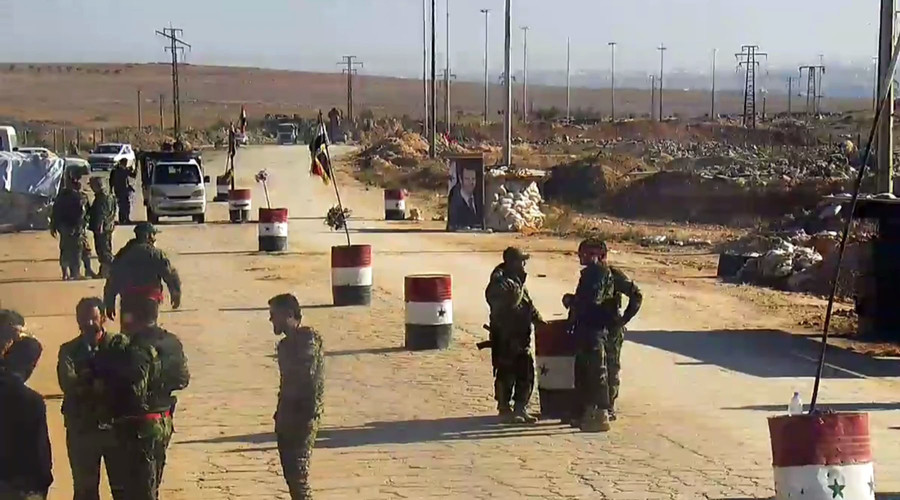
The Western mainstream media, of course, will not cover what the Russians are doing to achieve a peaceful resolution to the Syrian conflict, but would rather show the world the US “humanitarian” attacks on Mosul, Iraq, and proclaim themselves as liberators once again, in spite of the huge casualties that the civilians there have to pay.
In response to the White House’s non-compliance to the Russian request for it to separate the moderate rebels from Daesh terrorists, the Russian Embassy UK published a summary of US war crimes in Syria. The military industrial complex will never allow the US government to comply with the Russian demand to sever its ties with their terrorists because by then they would lose Saudi and Qatar as high value arms buyers.
“… the US government has agreed, that some Saudi figures have been supporting ISIS and funding ISIS, but the dodge has always been that it is some “rogue” princes using their oil money to do whatever they like, but actually the government disapproves. But that email says that it is the government of Saudi Arabia, and the government of Qatar that have been funding ISIS.”
John Pilger: The Saudis, the Qataris, the Moroccans, the Bahrainis, particularly the first two, are giving all this money to the Clinton Foundation, while Hillary Clinton is secretary of state, and the State Department is approving massive arms sales, particularly Saudi Arabia.
Julian Assange: Under Hillary Clinton – and the Clinton emails reveal a significant discussion of it – the biggest-ever arms deal in the world was made with Saudi Arabia: more than $80 billion. During her tenure, the total arms exports from the US doubled in dollar value.
JP: Of course, the consequence of that is that this notorious jihadist group, called ISIL or ISIS, is created largely with money from people who are giving money to the Clinton Foundation?
JA: Yes.
https://www.rt.com/news/365299-assange-pilger-saudi-clinton/
US will never separate its fighters from ‘Islamists’ because it depends on them
Dan Glazebrook
The big idea to herald a new era of US-Russian cooperation in Syria was to separate Western-backed ‘moderate rebels’ from groups such as ISIS and Al-Qaeda, so they could be part of political negotiations while the others were targeted by the US and Russian military.
Russia and Syria managed to get the UN Security Council to agree to ban the funding, training and arming of foreign fighters joining such groups in September 2014, while the US-Russia ceasefire agreement this September reiterated that “separating moderate opposition forces from Nusra [Al-Qaeda’s Syria affiliate, now rebranded as Jabhat Fatah Al-Sham]” was “a key priority.”
As Russian Foreign Minister Sergei Lavrov recalled at a news conference last week, “our agreements with the Americans linked this separation to a seven-day period of quiet. At the end of the period, the Americans undertook to show us on the map exactly where they believed there were terrorists and where there were none. On this basis, we should have jointly coordinated targets for effective engagement. To reiterate, they requested seven days for that, insisting that a seven-day pause should be a precondition. We announced this pause but it was violated with a strike against Syrian Army detachments three days later” – when, lest we forget, British and US bombers carried out a sustained attack on Syrian Army troops fighting ISIS in Deir al-Zour, killing 62 and wounding over 100, effectively burying the ceasefire.
Nevertheless, in response to Western demands, Syrian and Russian planes again suspended airstrikes on Aleppo two weeks ago, giving the US another chance to make good on its promises to ‘separate’ its favored rebel factions from the Al-Qaeda affiliate, the Nusra Front. A fortnight later, however – and fully ten months after his initial public call (at an International Syria Support Group meeting in February) for so-called ‘moderates’ to separate themselves from Al-Qaeda and co – Kerry was still pleading for them to have more time to do so.
Events on the ground, meanwhile, have been moving entirely in the other direction. More and more of the groups supposedly fighting under the West’s ‘Free Syrian Army’ banner (never much more than a fiction to which militias could pledge mythical allegiance in exchange for Western finance and weaponry) have been fighting with the Al-Nusra-led Jaysh Al-Fateh (Army of Conquest) alliance since it was launched in March last year. Indeed, so successful has this formation been – both in terms of capturing territory, mainly in Idlib province, and in establishing Nusra’s hegemony over the various insurgent factions – that its leader, Abu Mohammed al-Julani, apparently believes the ‘grand merger’ of rebel groups he has long dreamed of, fully integrated under a Nusra chain of command, is now a realistic possibility.
It is no surprise, then, that it is precisely this Nusra-led formation that has been leading the ‘rebel’ onslaught against government-held Western Aleppo launched last Friday, complete with car bombs, rockets and mortars directed against residential areas. These are thought to have killed at least 41 civilians, including 16 children, in “relentless and indiscriminate” raids that have “shocked and appalled”the UN Special Envoy to Syria Steffan de Mistura. The Independent’s Robert Fisk, reporting from the area following a rebel rocket attack, described “a younger boy [lying] on a hospital trolley, a doctor picking metal out of his face, all his limbs heavily bandaged. He was writhing in agony, moving his legs wildly, comforted by the director of the school.”
Will attacks like these, then, increase the urgency with which the US pursues its supposed desire to separate the groups in receipt of its largesse from their ‘Al-Qaeda lite’ allies?
This is highly unlikely: Syrian Foreign Minister Walid Muallem was probably correct when he stated last week that the US is unwilling to separate the factions its backs from Al-Nusra, despite its repeated commitments to do so, for two main reasons.
Firstly, rebel groups have openly targeted civilians since 2011, often on the basis of ethnicity, religion or political beliefs, and this has never bothered their Western backers before. Indeed, the rebels – then operating under the banner of the pro-Western Free Syrian Army – heralded their entry in Aleppo in 2012 with two massive car bombs in the city center and the burning down of the city’s centuries-old souks. This was followed up with a bomb attack on Aleppo University on January 15th 2013, killing 80, as part of the rebels’ ‘morale bombing’ campaign against those supporters of the government.
Two months later, one Syrian soldier and 19 civilians were killed in the village of Khan Al-Assal near Aleppo in a gas attack suspected by the UN Mission investigating it to have been carried out by the opposition. And as early as December 2012, Channel 4 News was reporting on suspected massacres of Alawite civilians by ‘Free Syrian Army’ fighters, massacres which have been a mainstay of rebel activities.
Far from dampening Western enthusiasm for the rebel cause, this particular report was followed up with calls by David Cameron to step up its assistance to the insurgency, who promised a doubling of British aid to the rebels within months. The targeting of civilians has never damaged Western support in the past, and is unlikely to do so now.
Secondly, aside from ISIS and the Syrian Army, Jabhat Fateh Al-Sham and Ahrar Al-Sham are clearly the most effective fighting groups on the ground, and the other rebel factions and its Western backers clearly understand this. And again, this is nothing new; sectarian Salafist groups have been the leading force in the insurgency since the start, as the West has always been fully aware.
Will attacks like these, then, increase the urgency with which the US pursues its supposed desire to separate the groups in receipt of its largesse from their ‘Al-Qaeda lite’ allies?
The now notorious US Defense Intelligence Agency memo of 12th August 2012, for example – which was circulated to, among others, the State Department, the CIA, the FBI and Central Command – noted that “the Salafist [sic], the Muslim Brotherhood, and AQI [Al-Qaeda in Iraq] are the major forces driving the insurgency in Syria.” And to prevent any ambiguity, DIA chief at the time, Michael Flynn, then confirmed in an interview with Al Jazeera’s Mehdi Hassan, that the US government’s backing of such forces was not based on ignorance, or a mistake, but was rather a “willful decision.” Such groups have always been the ‘driving force’ of the West’s anti-Syria operation, and the US government understands well that its insurgency would soon fizzle out without them.
As the US’s primary aim remains regime change rather than the defeat of terrorism, therefore, they are unlikely to make any serious attempt to divide their proxies from the fighting forces of Al-Qaeda. We can, instead, expect more pleas for time from the likes of John Kerry, and more spurious rhetoric about the US commitment to fighting terrorism, combined with continued material support for the very groups now openly allied to Al-Qaeda. In other words: more of the sordid same.
https://www.rt.com/op-edge/365214-syria-us-separate-islamists/
We suspect that Russia is buying more time, probably up until the results of the US presidential election has come to the fore, before deciding whether to resume the onslaught against the Daesh terrorists, or not.
Update: Aleppo ‘Bloodbath’: US-Backed Moderate Rebels Join Extremists in Major Offensive

The Army of Conquest, including al-Nusra Front, Ahrar ash-Sham, Ajnad al-Sham, the Sham Legion and other allied radical groups, like Fatah Halab, have launched a large-scale offensive in a bid to break the government siege of eastern Aleppo at a time when the Russian Aerospace Forces have refrained from conducting airstrikes on the embattled city.
Read more: https://sputniknews.com/middleeast/201611041047066651-aleppo-bloodbath-militant-offensive/
Aside from the fiat monetary scam and bloodsoaked petrodollar, another significant source of funds for the Nazionist Khazarian Mafia is the “healthcare” industry which registered a whopping $3.09 trillion in 2014, and is projected to soar to $3.57 trillion in 2017, in the US alone. We believe that this is just a conservative figure.
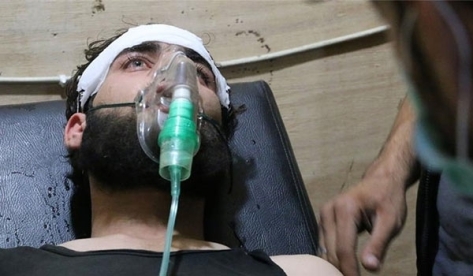
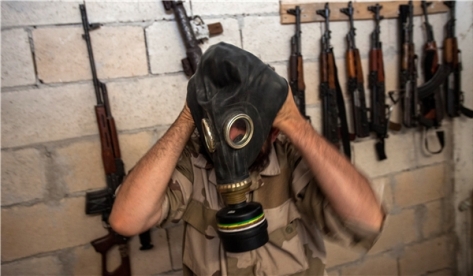
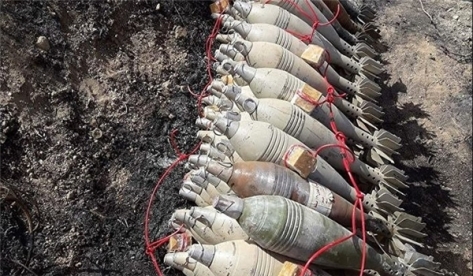
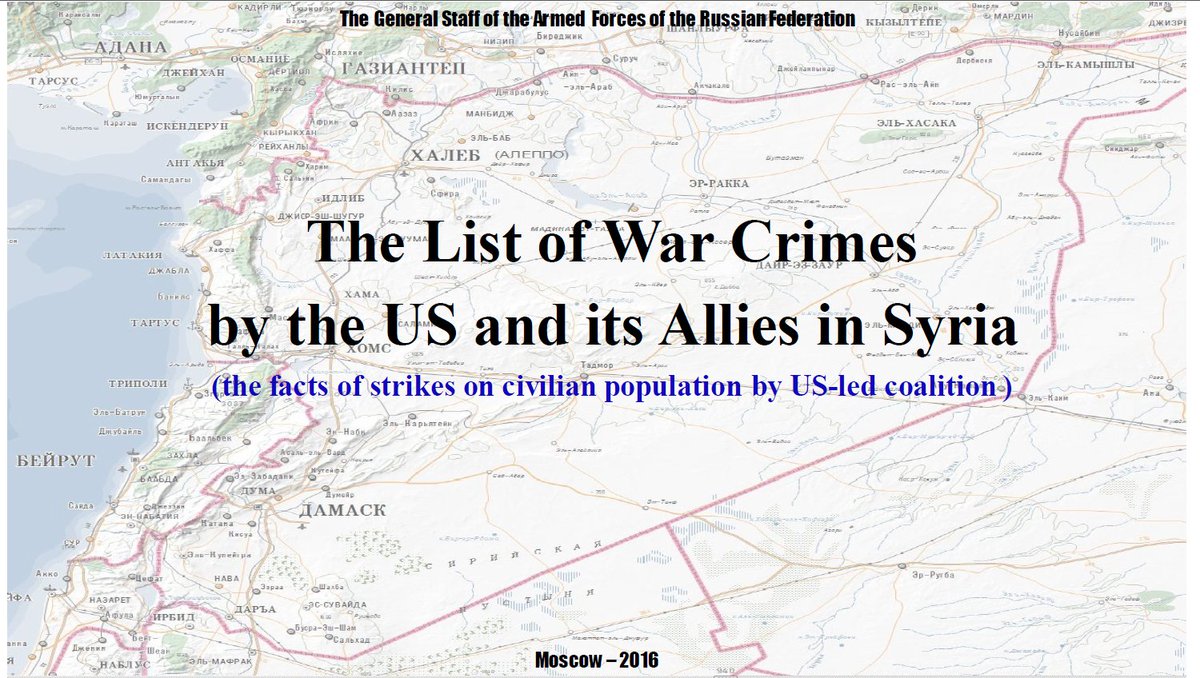

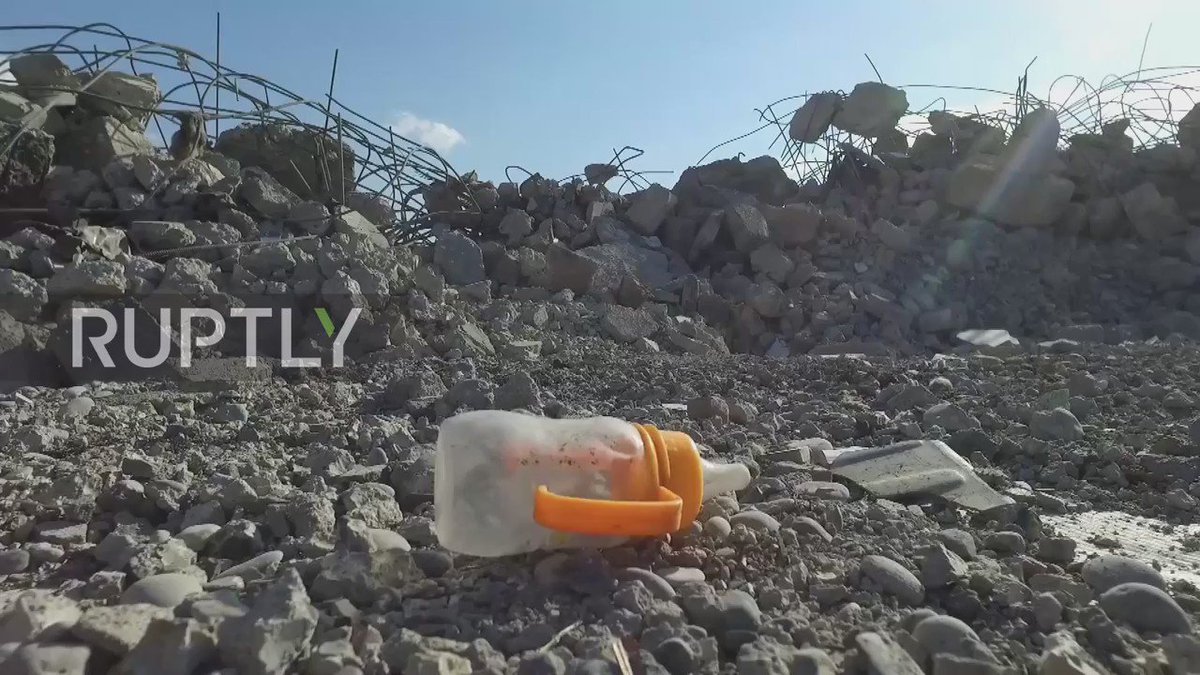

Comments
Post a Comment